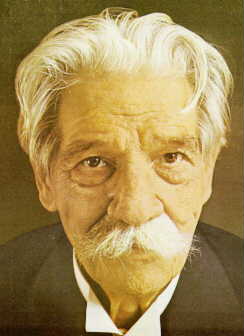 A lot of people go through life asking this question - why don't they like me? They look at others who are surrounded by friends and who seem to be people magnets and wonder - why can't that be me?
A lot of people go through life asking this question - why don't they like me? They look at others who are surrounded by friends and who seem to be people magnets and wonder - why can't that be me?Believe it or not, many studies have been done to determine just exactly what it is that causes us to like someone. You may be surprised by the results. In his book, The Me I Want To Be, John Ortberg shares that "Out of all the causes - physical attractiveness, IQ, ability, personality type - the number one factor that determines whether or not you will like another person is whether or not they like us. If they like you, you will like them. If they don't like you, you will not like them." Of course there are exceptions, but in general this is true. So what are the implications of this?
For one thing, it appears that how we interact with people has a great deal to do with how they treat us. It seems that what Dale Carnegie taught years ago is true. He wrote a book called How to Win Friends and Influence People that was a bestseller for a long time. Here's a quote from that book: "You can make more friends in two months by becoming interested in other people than you can in two years by trying to get other people interested in you." In light of the studies Ortberg talks about, this seems to be borne out in real life.
The question, then, would seem to be, how can we develop a genuine interest in people? I'm not talking about learning sales techniques in order to fool someone into thinking that you like them. I'm talking about learning how to genuinely be a people person. I think the greatest example of this in history is Jesus Christ.
As we read the Gospels we find that people were drawn to him, and no wonder. He welcomed every encounter with anyone who was genuine. Even with those with whom He disagreed, His goal was to point them towards the truth. He crossed social and cultural boundaries to add value to people who were outcasts. He made world-changers out of people to whom no-one else paid attention. What did He see that others didn't?
Jesus knew that every person He laid eyes on was created in the image of God, and as such, had innate value. It was this principle that the U.S. founding fathers seized on as they stated in the preamble to the Declaration of Independence: "We hold these truths to be self-evident, that all men are created equal, that they are endowed by their Creator with certain unalienable Rights, that among these are Life, Liberty and the pursuit of Happiness."
In the context of Jesus' life and actions, He treated each person who came to Him with respect, recognizing their intrinsic value. As Bill Hybels said, “We have never locked eyes with someone that did not matter to God.” Christians, in particular, need to grasp this truth. We may disagree with people, but we don't have to be disagreeable.
It's about your attitude.
You can either see people as assets or enemies. If you view them with suspicion, they will sense that and not be drawn to you. If, however, you're one of those who believes that every stranger is simply a friend you haven't met yet, you will have no shortage of friends. Treat people as you wish to be treated (the Golden Rule). As Ralph Waldo Emerson said, "Trust men and they will be true to you; treat them greatly and they will show themselves great."
Let's look at some good habits to develop if you want to be a people person.
- Smile.
- Show genuine interest.
- Remember names.
- Add value to people.
Let me conclude with some helpful quotes on the subject:
- "This is the final test of a gentleman: his respect for those who can be of no possible service to him." - William Lyon Phelps
- "To love a person means to see him as God intended him to be." - Fyodor Dostoyevski
- "The most useful person in the world today is the man or woman who knows how to get along with other people. Human relations is the most important science in living." - Stanley C. Allyn
- "You have two choices: You can act as though you tolerate people, or you can appreciate people. Those who appreciate people are going to make others more comfortable." - Roger Ailes
- "If you judge people, you have no time to love them." - Mother Teresa
The Power of Encouragement
When Confrontation is Necessary
Are You Teachable?






